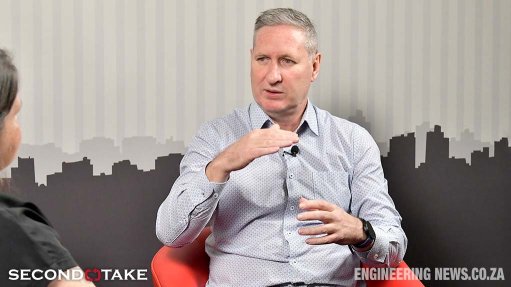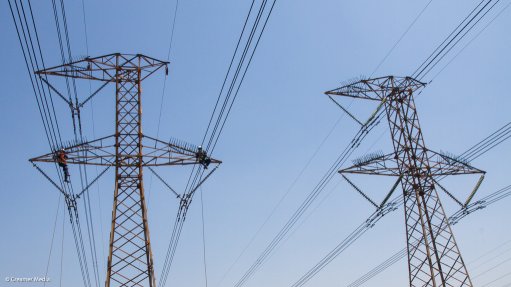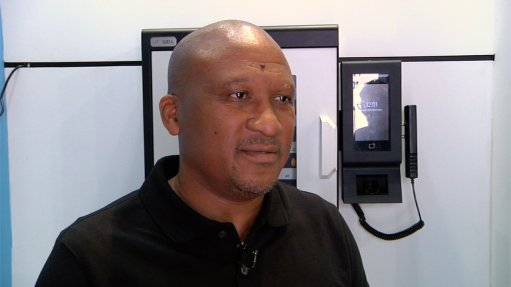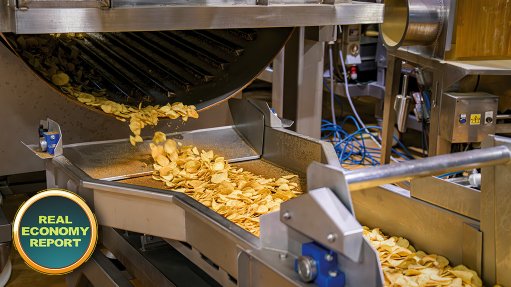Tasez set to drive NEV innovation, skills and sustainable growth


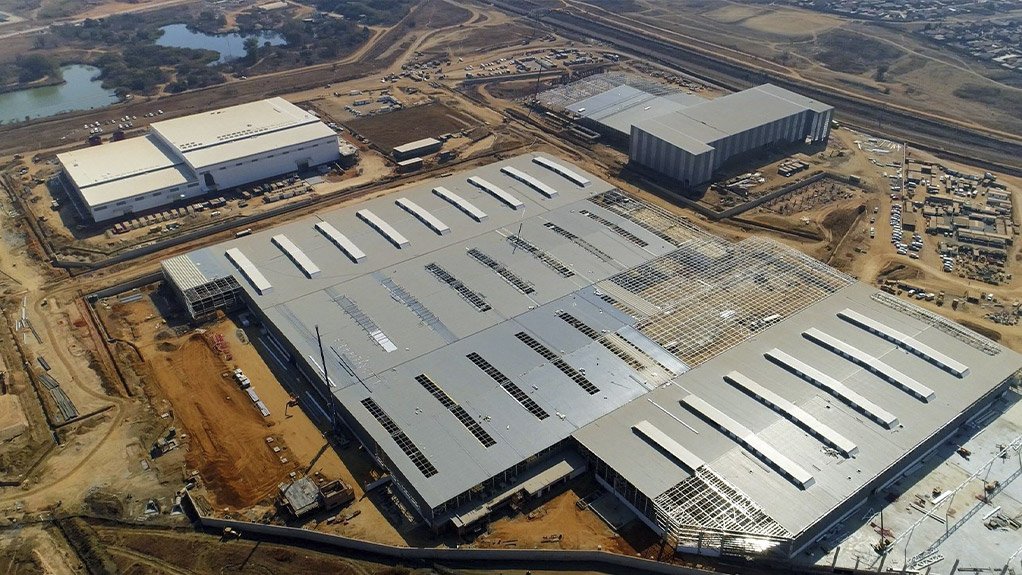
BHEKA ZULU The Tasez's aim is to become the heart of automotive advancement, creating new opportunities while ensuring sustainability
Photo by
EXPANDING OPERATIONS As automotive manufacturers have continued to invest in expanding their manufacturing operations, Tasez’s commitment to fostering skills and driving sustainability is proving vital
The rise of new energy vehicles (NEVs), including hybrids, is driving demand for investment in modernised automotive manufacturing facilities, with “Africa’s first automotive city”, the Tshwane Automotive Special Economic Zone (Tasez), playing a key role in meeting this demand.
Tasez says it is ‘well aware’ of the ever-evolving landscape of the automotive manufacturing industry, with NEVs “just around the corner”, and stresses the necessity of embracing Fourth Industrial Revolution skills in manufacturing and developing a keen awareness of sustainable practices.
To keep pace with these shifts and demands, Phase 2 of Tasez’s development is focused on becoming a ‘Centre of Excellence’, says Tasez CEO Dr Bheka Zulu.
This will encompass skills programmes, entrepreneurial incubation and high-tech education initiatives, all tailored to meet the evolving needs of both the automotive manufacturing industry and the surrounding communities.
In line with this vision, Tasez is also developing an automotive incubation programme focused on supporting Tier 1 and Tier 2 suppliers, expanding the hub and generating 3 000 new jobs.
“We are creating an ecosystem that fosters innovation, learning and growth,” explains Zulu. “Our aim is to become the heart of automotive advancement, creating new opportunities while ensuring sustainability.”
The automotive industry’s need for skilled workers in emerging technologies, such as those required for NEVs, has spurred Tasez to focus on helping to create a workforce capable of adapting to these changes.
Tasez is making substantial investments in skills development programmes designed to equip individuals with the knowledge and tools necessary to succeed. These programmes include technical and vocational training, apprenticeships, coaching and mentorships.
Zulu expresses that it is imperative that this investment in skills development programmes empowers individuals with the knowledge and solution-driven tools required to help their communities. He adds that youth development is a key component of Tasez’s business case.
“These programmes aim to provide access to world-class opportunities, thereby cultivating a skilled workforce capable of not only seizing existing economic opportunities but also creating new ones.”
The Tasez Training Academy plays a pivotal role in this approach, having been established in partnership with tertiary institutions, industry agencies, professional bodies, sector education and training authorities (Setas) and the Quality Council for Trades and Occupations.
The academy aims to support South Africa’s transition to net zero by 2050 through programmes incorporating carbon capture, utilisation and storage, for example.
“Net zero cannot be achieved without sustained support, behavioural changes and participation from citizens, particularly in advanced economies,” Zulu states.
These programmes will tackle emissions from existing energy assets, providing solutions where emissions are hardest to abate, thereby supporting the rapid scaling up of low emission hydrogen production, and enabling some CO2 to be removed from the atmosphere by companies owned or run by youth, women and the disabled, says Zulu.
The Tasez Training Academy aims to train 1 000 individuals – of which 60% will be women, 70% will be youth, 80% from local communities, and 2% with disabilities. The academy will also support 40 small, medium-sized and microenterprises (SMMEs) in the automotive and construction sectors, and engage 2 200 people in learnerships, internships, and skills programmes through Seta partnerships.
“To us these are not merely numbers – each job created, or project supported, represents real families and community members living secure lives with dignity and self-respect,” says Zulu.
Tasez’s vision remains focused on providing an integrated, coordinated and highly articulated post-school education and training system aimed at improving economic participation.
As automotive manufacturers, such as Ford, Stellantis and others, continue to invest in expanding their manufacturing operations – such as Ford’s investment in the Silverton Assembly Plant – Tasez’s commitment to fostering skills and driving sustainability is proving vital to both the industry and surrounding communities.
The automotive city has already had numerous successes, with Zulu pointing to the initial phase of development, which saw the creation of 5 071 construction jobs, with 18% going to women, 60% going to youth, and 0.86% going to people with disabilities.
Additionally, Phase 1 created 3 244 permanent jobs in the automotive manufacturing sector – with women representing 32%, youth 65.47%, and people with disabilities 0.83% – as well as 10 000 supply chain jobs.
Tasez also provided SMMEs with R1.7-billion in contracts.
“South Africa sets great store in the SMME sector as a driver of economic development and growth,” notes Zulu, adding that the National Development Plan 2030 has set a target of 24-million people in employment by 2030, of which 21.6-million would be employed by SMMEs.
The Tasez will continue to support the sustainable development of the South African automotive industry into 2025 and beyond.
Comments
Press Office
Announcements
What's On
Subscribe to improve your user experience...
Option 1 (equivalent of R125 a month):
Receive a weekly copy of Creamer Media's Engineering News & Mining Weekly magazine
(print copy for those in South Africa and e-magazine for those outside of South Africa)
Receive daily email newsletters
Access to full search results
Access archive of magazine back copies
Access to Projects in Progress
Access to ONE Research Report of your choice in PDF format
Option 2 (equivalent of R375 a month):
All benefits from Option 1
PLUS
Access to Creamer Media's Research Channel Africa for ALL Research Reports, in PDF format, on various industrial and mining sectors
including Electricity; Water; Energy Transition; Hydrogen; Roads, Rail and Ports; Coal; Gold; Platinum; Battery Metals; etc.
Already a subscriber?
Forgotten your password?
Receive weekly copy of Creamer Media's Engineering News & Mining Weekly magazine (print copy for those in South Africa and e-magazine for those outside of South Africa)
➕
Recieve daily email newsletters
➕
Access to full search results
➕
Access archive of magazine back copies
➕
Access to Projects in Progress
➕
Access to ONE Research Report of your choice in PDF format
RESEARCH CHANNEL AFRICA
R4500 (equivalent of R375 a month)
SUBSCRIBEAll benefits from Option 1
➕
Access to Creamer Media's Research Channel Africa for ALL Research Reports on various industrial and mining sectors, in PDF format, including on:
Electricity
➕
Water
➕
Energy Transition
➕
Hydrogen
➕
Roads, Rail and Ports
➕
Coal
➕
Gold
➕
Platinum
➕
Battery Metals
➕
etc.
Receive all benefits from Option 1 or Option 2 delivered to numerous people at your company
➕
Multiple User names and Passwords for simultaneous log-ins
➕
Intranet integration access to all in your organisation











